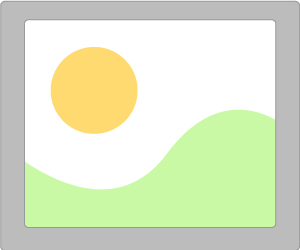Messaggi: 34
Lingua: English
Vestitor (Mostra il profilo) 28 novembre 2015 11:36:59
robbkvasnak (Mostra il profilo) 28 novembre 2015 16:53:58
Miland (Mostra il profilo) 29 novembre 2015 10:11:44
robbkvasnak:sukerakvo - hahahaha - kaloribomba trinkaĵoThat may be true for many fizzy drinks, but what about Coca Cola Zero?
jefusan (Mostra il profilo) 30 novembre 2015 19:46:11
jefusan (Mostra il profilo) 30 novembre 2015 19:50:50
Vestitor:'Limonade' is also used in the Netherlands and is clearly a misappropriation of the word 'Lemonade' and to cover all types of fruit drink mixed with water. Most of the time it's not even carbonated.That is odd. (To my ears.)
On the other hand, there are places in the Southern U.S. where all sodas are called "cokes." As in: "What kind of coke do you want?" "I'll have a root beer."
Also, there's a difference between what Brits and Aussies call a lemonade (what we Americans would call a lemon-lime soda) and what Americans call a lemonade (a flat drink made of water, lemon juice, and sugar.)
Mustelvulpo (Mostra il profilo) 30 novembre 2015 20:58:04
erinja (Mostra il profilo) 30 novembre 2015 21:20:54
Mustelvulpo:Where I live, a carbonated soft drink is "pop.""pop" sounds hopelessly 50's around here. I'm told by people living in "pop" territory that "soda" sounds hopelessly 50's to them. Depends on what you're used to hearing, I guess!
Vestitor (Mostra il profilo) 01 dicembre 2015 01:13:07
jefusan:*tearing hair out emoticon!*Vestitor:'Limonade' is also used in the Netherlands and is clearly a misappropriation of the word 'Lemonade' and to cover all types of fruit drink mixed with water. Most of the time it's not even carbonated.That is odd. (To my ears.)
On the other hand, there are places in the Southern U.S. where all sodas are called "cokes." As in: "What kind of coke do you want?" "I'll have a root beer."
Also, there's a difference between what Brits and Aussies call a lemonade (what we Americans would call a lemon-lime soda) and what Americans call a lemonade (a flat drink made of water, lemon juice, and sugar.)
After thinking about all this my conclusion is that it is all now so regional, adding another layer of specification in Esperanto is counter-productive!
erinja (Mostra il profilo) 01 dicembre 2015 04:16:06
Vestitor:After thinking about all this my conclusion is that it is all now so regional, adding another layer of specification in Esperanto is counter-productive!Food words are just really hard and very regional in every language. A Spanish "tortilla" is nothing like a Mexican "tortilla", for example.
I've had knockdown, drag-out debates about the meaning of "kuko" versus "torto". We just could not agree. English speakers versus continental Europeans, we just could not agree on what qualified as what.
A top and bottom crust with a fruit filling - clearly a "torto" in my opinion. A sweet baked bready thing risen with chemical leavening versus yeast and perhaps with a sweet sugar paste on top - clearly a "kuko" in my opinion. But many/most continental Europeans will tell you the opposite.
sudanglo (Mostra il profilo) 02 dicembre 2015 11:39:33
However most countries have fizzy soft drinks.
After some thought, I felt uncomfortable with ŝaŭm-trinkaĵo. Ŝaŭmo for me is the head on, for example, German draught lager.
I wonder if a better term for any fizzy or sparkling drink wouldn't be ŝpruca trinkaĵo.
Sparkling or still could then be ŝpruca aŭ ne-ŝpruca.
I certainly don't fancy drinking diluted caustic soda or washing soda, so I am a bit resistant to soda akvo (sodakvo). However one can easily conserve the historic link by using soda-akvo - for example, when ordering a whisky and soda - making use of sodao analogous to kolao.
Soda-akvon mi petas. Not sodan akvon or sod-akvon, mi petas







